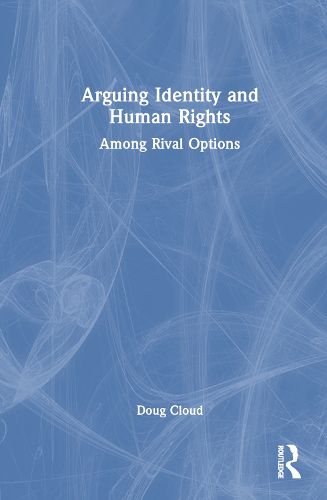Readings Newsletter
Become a Readings Member to make your shopping experience even easier.
Sign in or sign up for free!
You’re not far away from qualifying for FREE standard shipping within Australia
You’ve qualified for FREE standard shipping within Australia
The cart is loading…






Arguing Identity and Human Rights poses open questions about how to best argue for human rights, to help us think through the advantages and trade-offs of different rhetorical strategies, identify rival options, and, ultimately, choose our own paths.
Modeling a humane approach to human rights argument, this book offers four deep rhetorical analyses of some of the most vexing and fascinating challenges facing human rights arguers in the United States: How do we want to frame difference in human rights advocacy-are we trying to downplay difference or something else? How can we best answer dismissive responses to human rights arguments? Should we portray people in marginalized categories as having "no choice" about their identity, and what would alternatives look like? What are the possibilities and perils of trying to "afflict" audiences with hegemonic identities to persuade them on human rights issues? Offering clear practical and theoretical implications while resisting easy answers, the book provides a concise introduction to the relationship between identity, discourse, and social change.
Designed for both theorists and practitioners, for current and aspiring human rights arguers, this insightful text will be of use to students of rhetoric, argumentation, persuasion, and communication studies more generally, as well as human rights, social activism and social change, political science, sociology, and race and gender studies.
$9.00 standard shipping within Australia
FREE standard shipping within Australia for orders over $100.00
Express & International shipping calculated at checkout
Arguing Identity and Human Rights poses open questions about how to best argue for human rights, to help us think through the advantages and trade-offs of different rhetorical strategies, identify rival options, and, ultimately, choose our own paths.
Modeling a humane approach to human rights argument, this book offers four deep rhetorical analyses of some of the most vexing and fascinating challenges facing human rights arguers in the United States: How do we want to frame difference in human rights advocacy-are we trying to downplay difference or something else? How can we best answer dismissive responses to human rights arguments? Should we portray people in marginalized categories as having "no choice" about their identity, and what would alternatives look like? What are the possibilities and perils of trying to "afflict" audiences with hegemonic identities to persuade them on human rights issues? Offering clear practical and theoretical implications while resisting easy answers, the book provides a concise introduction to the relationship between identity, discourse, and social change.
Designed for both theorists and practitioners, for current and aspiring human rights arguers, this insightful text will be of use to students of rhetoric, argumentation, persuasion, and communication studies more generally, as well as human rights, social activism and social change, political science, sociology, and race and gender studies.